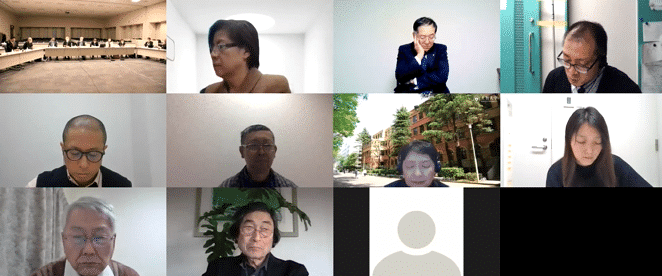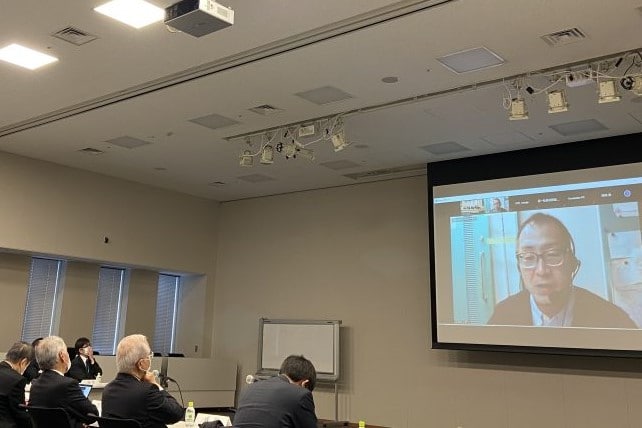The third Roundtable on Japan’s Migration Policy held in FY2020 took place as a hybrid meeting, with some participants meeting in a conference room at the House of Representatives and others joining the discussion online. Twenty-four of the group’s twenty-eight members were represented at the meeting, which featured an active discussion on issues related to the livelihoods and education of foreign residents living in Japan.
The session opened with a report on members’ activities by Professor Eriko Suzuki (Seidanren; Japan Association of New Economy (JANE); and Solidarity Network with Migrants Japan) and Osamu Ide of NPO Idea Kyushu, moderated by Akio Okawara (president and CEO, JCIE/Japan).
This was followed by a session on “The Impact of COVID-19 on the Lives and Education of Foreign Residents,” moderated by Professor Suzuki, which featured an exchange of ideas with Takashi Yamanoue, executive director of the Association for Toyonaka Multicultural Symbiosis (ATOMS). Mr. Yamanoue explained that ATOMS has identified a number of problems with the information being provided on COVID-19 in Japan, including inaccuracies in the information offered in other languages, insufficient information for communities, and a lack of access to information among foreign residents. He shared the voices of foreign residents who have faced issues such as declining income and have concerns over their livelihoods and education. He also pointed out that, because of a lack of understanding of employment contracts and social security, some people have not been able to apply for, or receive, appropriate public support. Following the presentations, there was a question and answer session with a lively exchange of opinions on the medical response to the pandemic, concerns around education, and the current state of government support.
Finally, Tetsuo Narukawa of Okasan Securities and JCIE’s Toshihiro Menju explained and discussed a newly drafted proposal for migration policy looking toward the “post-corona” era. Based on the various opinions shared by members of the roundtable, the secretariat plans to further refine and improve the proposal.


